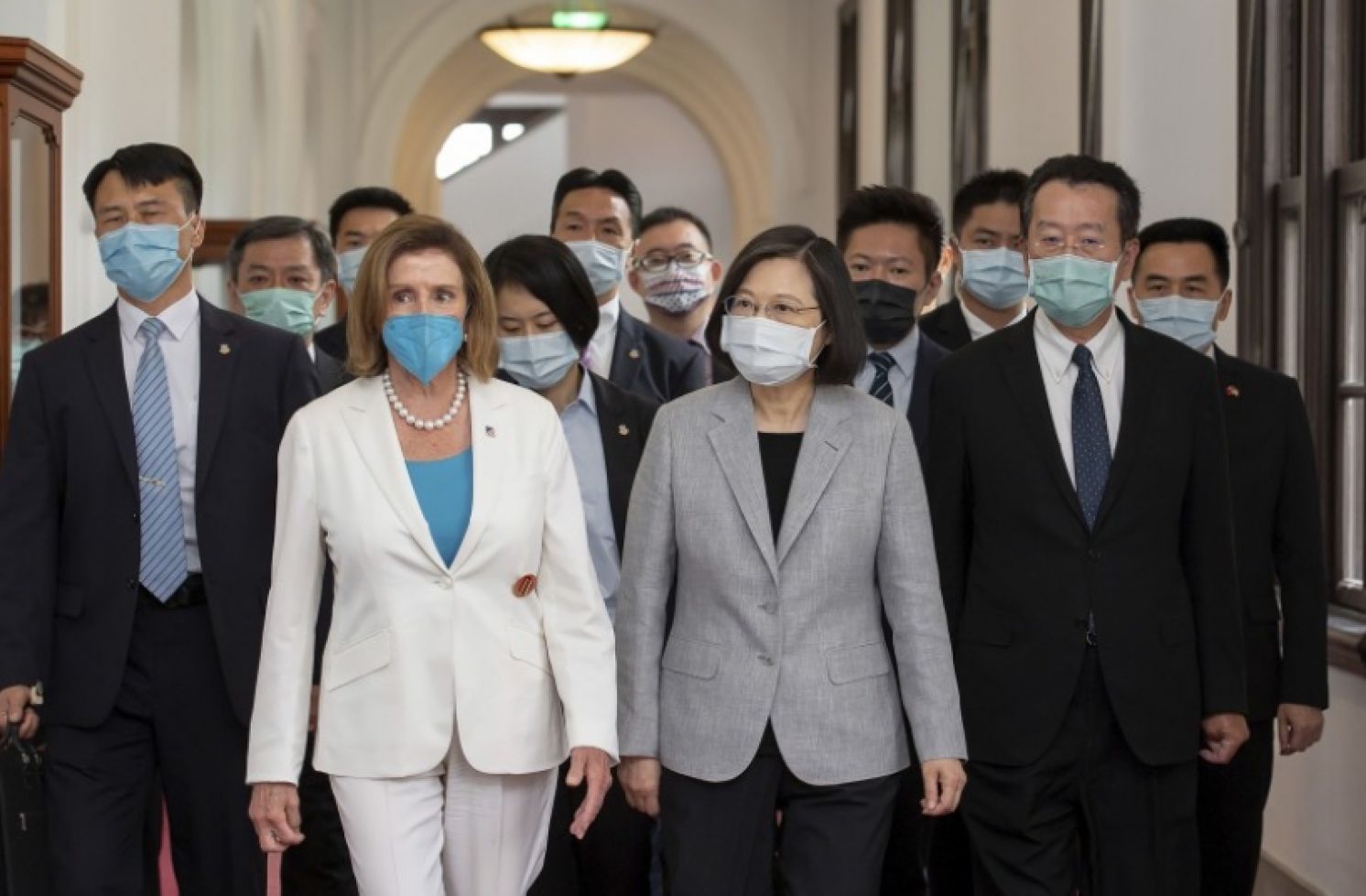
Taiwan to Face Harsher Retaliation If New U.S. Speaker Visits
The Storm Media, November 18, 2022
The Republican Party now controls the majority in the House of Representatives. Republican leader Kevin McCarthy, expected to become the speaker of the House of Representatives, once stated that he would visit Taiwan as speaker. John Culver, who once served in the Central Intelligence Agency, stated bluntly on November 17 that if the Speaker of the House visits Taiwan as a routine, China will clearly warn the United States that it is undermining U.S.-China relations. Alexander Huang, chairman of the Council on Strategic & Wargaming Studies, stated that Taiwan should learn lessons from Speaker Nancy Pelosi’s visit in early August this year. The Center for Strategic and International Studies (CSIS) held the first forum of the 7th annual conference on China’s power. Culver and Huang discussed the “new normal” of China’s live-fire military drills against Taiwan in August. “Whether it will lead to a crisis between the United States and China or between the two sides of the Taiwan Strait?”
According to Culver, Taiwan’s Ministry of National Defense stated in August that it would exercise the right of self-defense to counter China’s military aircraft and warships. He indicated that Pelosi’s visit to Taiwan is not a precedent, because in 1997, then Speaker of the House Newt Gingerich visited Taiwan, but he visited China first and then Taiwan.
According to Culver, the legislative and executive branches are equal organs, but the Speaker of the House of Representatives is second only to the vice president in line of presidential succession. Therefore, China will take concrete actions to let the United States know that it is destroying the bilateral relationship between the United States and China. Huang stated bluntly that Taiwan has no position to say that it would decline the visit of the House Speaker for security reasons, but it must learn lessons from Pelosi’s visit after all.
According to Huang, He Weidong, commander of the Eastern Theater of the People’s Liberation Army (PLA), who orchestrated the August military exercise against Taiwan has been promoted to vice chairman of the Central Military Commission of Chinese Communist Party at the 20th National Congress. The aftermath of the new House speaker’s trip to Taiwan will be more serious than when Pelosi visited Taiwan in early August.
Huang stated that if the relationship between Taiwan and the United States is at its best, we need to discuss it with the U.S. House of Representatives office and the White House. According to Huang, the signal sent to China must be considered, and the composition of the delegation is cross-party or single and members of the delegation will have varied implications to China, since there is no communication channel between Taiwan and mainland China now.
Regarding whether China’s live-fire military exercises against Taiwan will become the “new normal”, whether it will lead to a conflict between the United States and China, or between the two sides of Taiwan Strait in the next one or two years, according to a poll conducted by the CSIS on Twitter a few days ago, about 54.1 percent of the respondents do not think it will, about 45.9 percent think it will be.
Before the start of the forum on November 17, the CSIS surveyed the audience again. The survey shows that about 68 percent think not, and about 32 percent hold the opposite view. Culver indicated that Chinse President Xi Jinping has no timetable for sending troops to Taiwan, because he adjusts his attitude according to the conditions of the situation. He indicated that Taiwan’s declaration of independence, manufacture of nuclear weapons, political turmoil and the stationing of foreign troops are all red lines for China to abandon non-military means of unification.
According to Culver, in the past 20 years, the cross-strait economic and trade as well as non-governmental exchanges have been close, which has made China hold still when it will invade Taiwan. According to Huang, China has always believed that the United States will intervene in cross-strait conflicts, but Mr. Xi, who has greatly increased his confidence, firmly believes the time is on China’s side. He believes that Mr. Xi’s priority is to maintain personal power.
According to Huang, most Taiwanese choose to maintain the status quo, that is, neither independence nor unification, nor war. If conflicts between the two sides of the Taiwan Strait break out before the presidential election in January 2024, then the election may be canceled, which will prolong the DPP’s governance in Taiwan. He emphasized that tensions can be eased by maintaining open channels of communication, balancing military readiness and preventive diplomacy. Huang also said that Taiwan should not be treated in the same way as Ukraine, and China has also learned lessons from the international response to Russia’s invasion of Ukraine. He mentioned that mainland China lacks ranking military generals with practical experience in modern warfare. According to Culver, if China wants to fight a war, it will be a traditional mode, and the preparations that China is making now are to avoid future economic and diplomatic pressure. Culver believes that the United States should “do more and talk less” in the future, without fanfare to the world.
In addition, after the first half of the forum, the audience answered the same question again. The results show about 76 percent believing that there would be no U.S.-China or cross-strait crisis and only 24 percent believing otherwise.